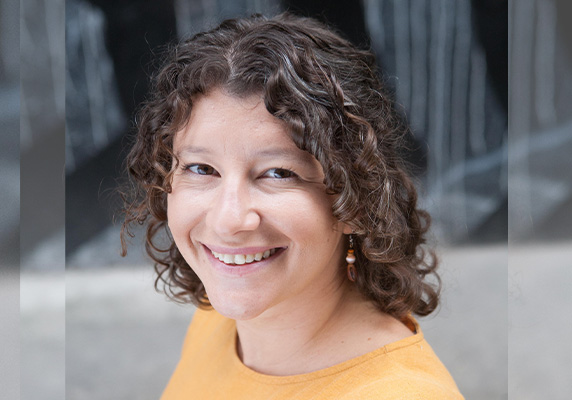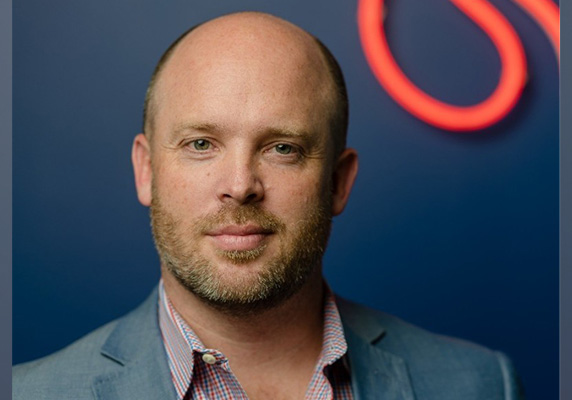A legal career does not have to be linear, say three lawyers who are working simultaneously in the law and other fields.
It was a passion for languages that initially led author Suzanne Leal to study law. She was chasing a dream of working in the Department of Foreign Affairs when she enrolled in a combined Bachelor of Arts and Law degree at the University of Sydney.
“At school, I loved English, French and German, and was keen to [continue] studying languages at university. I knew nothing about law … for the first three years of my degree, I was much more interested in my language studies than my law subjects,” Leal says.
“I only became interested in law once I’d finished my arts [component] and could choose subjects directed towards social justice issues rather than commercial practice.”

Leal’s initial interest in law developed into a successful three-decade legal career, spanning a policy position within the Criminal Law Review Division of the NSW Attorney General’s Department; a solicitor role at the Legal Aid Commission of NSW; and later, appointment as a member of the Migration Review Tribunal, the Refugee Review Tribunal and the NSW Administrative Decisions Tribunal.
But, while a trajectory like Leal’s is not uncommon for many professionals in the legal field, it is the addition of her parallel career in the literary community that offers a unique point of difference.
Not by the book
As well as continuing to work actively as a senior member of the NSW Civil and Administrative Tribunal (NCAT), Leal has authored four novels. Her debut, Border Street, was published in 2006, followed by The Teacher’s Secret in 2016, The Deceptions in 2020 and, most recently, The Watchful Wife this year. She has also authored a children’s book, Running with Ivan.
“I loved creative writing and had always imagined doing more of it,” Leal says. “When my former landlord and neighbour, Fred Perger, agreed to tell me about his experiences of the Holocaust as a young Czech Jewish man, the stories he recounted gave me the inspiration for my first novel.”
Beyond her own writing, Leal has contributed broadly to the arts, serving as chair of the fiction and poetry panel for the Prime Minister’s Literary Awards; senior judge for the NSW Premier’s Literary Awards; and interviewer for events held at the State Library of NSW. Currently she is a board member of the BAD Sydney Crime Writers Festival.
While on paper the two careers may appear to be worlds apart, Leal credits the success of her novels to her legal knowledge and training, arguing her simultaneous professions are in fact complementary.
“My legal background has always been helpful, especially as a means of earning money, because it’s difficult to make a living as a writer,” she explains.
“My legal training also instilled in me the ability to focus and to meet deadlines. My novels The Teacher’s Secret and The Watchful Wife explore the predicament of those who find themselves caught up in the criminal justice system … [using] my earlier experience as a criminal lawyer.
“I think a lot of lawyers have a creative bent they would like to explore,” Leal adds.
“Because I am a sessional member [of NCAT] rather than a full-time member, the job is flexible and I am able to reduce or increase my workload to fit around my writing commitments.”
From author to activist
The disparity between a law degree and a combined alternative career does not have to be as distinct as it is in Leal’s case. For lawyer Ariane Dozer, who descends from the Gayiri and Badtjala peoples and lives and works on Bundjalung Country in northern NSW, legal knowledge and training are intimately entwined with the fight against systemic injustice.

Dozer’s activism is fuelled by the “strength and survival” of both her Aboriginal and Jewish ancestry, and her families who “survived persecution and attempted genocide, and the ongoing suffering that comes with having to fight for your very existence”.
She first pursued a law degree to follow in her parents’ footsteps. “Both of them studied law, and I’m hopeless with maths and science, so it felt like the obvious choice,” she explains.
But Dozer was never certain that she wanted to practise law in “the traditional sense”. Instead, she used her combined Bachelor of Law and Communications degree from the University of Technology Sydney to give her “options for the future”.
“I wanted a career that would be meaningful and engaging and have a positive impact. For me, law – and social policy – was a widely recognised academic base to kickstart a career in helping to recognise past wrongs and shape a better future.
“There are so many varied opportunities in the not-for-profit, public and private sectors that a legal background can open up.”
This outlook has been realised through a host of policy, research and engagement positions that have furthered Dozer’s activism and enabled her to use her legal background without necessarily requiring her to act as a lawyer. These positions include roles with the NSW Aboriginal Land Council; the Royal Commission into Violence, Abuse, Neglect and Exploitation of People with Disability; Thomson Reuters; and the SERniña Association, which advances gender equality in Guatemala by supporting the empowerment of girls, women and youth.
In 2017, Dozer took up a “once in a lifetime opportunity” with the Australian Human Rights Commission to contribute to the Wiyi Yani U Thangani (Women’s Voices) project led by Aboriginal and Torres Strait Islander Social Justice Commissioner June Oscar AO.
“It was truly the most rewarding experience – hearing from courageous women and girls across the country and working with the most formidable women,” reflects Dozer on the national engagement project, which aimed to advance the voices and priorities of First Nations women and girls across the country.
Dozer’s current role with the National Justice Project (NJP) – a not-for-profit that tackles systemic injustice through strategic litigation – has pulled her back to the legal field in a more traditional sense. With the NJP, Dozer is practising as a solicitor while also leading the organisation’s collaborative projects and policy agenda.
While the majority of Dozer’s day-to-day work is directed towards bigger picture work – she takes on just one or two cases at a time – moving back to law in a more concrete way has highlighted for her the complex and difficult realities of the Australian legal system for First Nations communities. It has also demonstrated to Dozer how much of her battle is still yet to be won.
“There is an inherent conflict in working within a system – the legal system – that is both the cause of so much damage and pain, as well as an opportunity for justice for some,” Dozer says.
“We confront this conflict daily,” she says, “trying to utilise the law to seek justice for our clients, while advocating to reform the system entirely because it is so inherently flawed and broken.”
‘There is an inherent conflict in working within a system – the legal system – that is both the cause of so much damage and pain, as well as an opportunity for justice for some.’
“Change is painfully slow,” Dozer says. “While we see some important progress and impact, it terrifies me that I might not see meaningful changes in the systems and institutions that are so heartbreakingly harmful and discriminatory in my lifetime, including policing, justice, the ongoing removal of children, and health and social services.”
A legal-adjacent career
Like Dozer, Sydney-based Hunter Steele, CEO of global legal practice management software company Smokeball, was initially motivated to study law following a childhood spent in his father’s small firm in Bathurst
“As children, we were often spending afternoons and the odd day in [my dad’s] office, surrounded by the practice of law. During my teenage years, I spent holidays working in the office helping out with different tasks wherever I could,” Steele says.
“I loved everything about it and decided that I too, wanted to be a lawyer, and follow in my father’s footsteps.”

But as Steele was completing his law degree at Bond University, a compulsory IT unit opened the door to a more enticing career path. Discovering the study of technology came naturally to him, Steele modified his degree to add a Bachelor of Information Technology, and was accepted on a scholarship as just one of five students taking the rare approach of combining the two disciplines.
“I could not have been happier, as I was learning every day about the law, for which I had a passion [arising] from my father’s business, and about computer science and information technology, for which I had found a natural instinct and affiliation,” Steele reflects.
While the plan was always to practise law, a work experience placement with LEAP Legal Software gave Steele “the bug I couldn’t shake”, and he joined the company as a software developer. His first foray into legal tech turned into a 23-year career in the industry, with Steele now running Smokeball, a startup he co-founded along with LEAP’s head Christian Beck.
“I would say it was never my ambition to become an entrepreneur. In fact, I wanted to be a small-law-firm lawyer who helped people get through their legal ‘time of need’ like my father did,” Steele says.
“It was Christian’s mentorship, entrepreneurial spirit and blind determination that completely changed my career trajectory, and I have enjoyed every moment of the journey, as crazy as it has been.”
Over almost 12 years, Smokeball has grown to become a thriving legal tech company focusing on small law firms, employing 300 people across Australia, the US and the UK. Interestingly, like Steele, more than one-third of Smokeball staff either have a law degree or were employed in a legal office before they made the switch to legal tech.
“I truly believe that a law degree is a gateway to many professions, careers and pathways. Of the people I went through my degree with, only half are practising lawyers, and the other half are in technology, finance, management, teaching and have even been running NGOs,” Steele says.
“None of them regret obtaining their legal training and believe they use it not only in their career, but also in their everyday conversations and lives.”
‘a law degree is a gateway to many professions, careers and pathways’
Steele says the study of law has benefited him in many ways: it has provided the ability to comprehend complex compliance obligations, to do research, and to apply legal principles in his technology.
“Growing up in a small law firm and completing a law degree has most definitely helped me make better decisions both in business, and in the software itself, over the past 23 years,” he concludes.
“Understanding the ‘why’ of the law [and] the fundamentals it is based on … has given me a head start on any sales pitches, software specifications or fundraising proposals that have come my way. This has absolutely helped me on my journey and in running and building Smokeball.”




